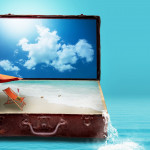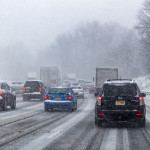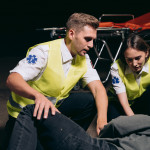Travel insurance is one of the most important things you need for your trip, but it's often overlooked by travelers planning their trip.
I would never drive a car without auto insurance or own a house without home insurance. There is no need to risk traveling around the world without travel insurance.
While it may seem like an unnecessary expense, travel insurance provides an important safety net when abroad.
Illness and injury, flight cancellations, electronic damage, lost luggage, death of family members at home are all covered by travel insurance. Simply put, travel insurance is a general-purpose emergency insurance plan. It is the most important thing to bring on a trip and we strongly advise travelers not to leave home with it. I've seen it help so many people over the years - people who would otherwise have lost thousands of dollars.
I used it on a doctor in Argentina when my camera broke in Italy, when my eardrum burst in Thailand, and when my package was stolen in South Africa. Each time I was reimbursed for my expenses and recovered.
Travel insurance paid for when my friend had to fly out of the Amazon after falling off a boat, when another friend's father died and had to fly home, when another friend It was there when my bag was stolen.
Travel insurance is designed so that you don't lose a lot of money in the event of an emergency abroad. Since most domestic health insurance programs don't cover you abroad and travel credit cards offer limited protection, purchasing travel insurance is a must to protect yourself from the unknown.
What to Look for in a Good Travel Insurance Plan
Insurance is a multi-billion dollar business, and everyone wants their hand in the cookie jar. As a result, you can be faced with so many companies, policies and terminology that it can be confusing and overwhelming.
And in the details, the plan is often not as good as it first appeared.
So what should you do?
First, make sure your travel insurance has high medical coverage. A good company will offer coverage up to $100,000, but more expensive policies will cover higher amounts. The maximum coverage limit you can find is around $2,000,000, but I'm not sure why you would need such a large limit.
High coverage because you need to ensure that expensive hospital bills are covered if you become ill or injured, need serious assistance, or need to seek professional help Limits are important. The worst thing you can do is go cheap, buy insurance with a $20,000 limit, break your leg, and hit that limit before you're done nursing.Don't skimp on your health. . Make sure you have at least $100,000 in coverage.
Second, make sure your travel insurance also includes emergency evacuation and care separate from your health insurance. If you are hiking in the woods and break your leg, evacuation to the nearest acceptable medical facility should be included in your insurance policy.
If a natural disaster strikes and you need to evacuate to another location, your plan should cover that as well. This protection should cover costs of up to $300,000. Also, find out if your evacuation insurance will pay for your transportation home, or if it will just send you to the nearest acceptable facility.
For example, if you break your leg abroad, most insurance will cover hospitalization costs. However, they won't pay to send you home because it's not a life-threatening injury that requires advanced treatment.
Standard emergency evacuation coverage often only moves when current facilities are inadequate or "medically necessary." Only then will they pay for the return flight.
In short, double check that the company will cover the cost of your return flight if necessary. If you don't want to stay in a foreign hospital for treatment and recovery, consider a medical transport membership program like Medjet. They ensure that if you are hospitalized abroad, you can be repatriated. This is not covered by most travel insurance.
Third, good travel insurance always includes provisions for:
- We cover most countries in the world (including places you want to visit).
- Coverage for some of your electronics (and there are options for higher coverage).
- Insurance for injuries and illnesses.
- We provide 24/7 support (no need to call back later).
- Insurance against loss, damage or theft of jewelry, luggage, documents, etc.
- Covers cancellation of hotel, flight and other transportation bookings in the event of sudden illness, death of a family member or other emergency.
- Compensation if you have to return home early due to a political emergency, natural disaster or civil war in your country.
- Financial protection if your business goes bankrupt and you are stranded in another country.
A quick note about electronics:
Most companies only have a small limit (usually up to $500 per item) as part of their basic insurance. In many cases, you can purchase additional insurance to get higher coverage.
Additionally, many regular and home insurance companies offer insurance plans to help cover electronic devices.
If you travel with cameras, laptops, phones, and other electronic devices, make sure you have good coverage. They are usually the ones most likely to be lost, stolen, or damaged. What travel insurance does not cover
Just as important as knowing what the plan covers is knowing what it doesn't cover.
In general, most plans don't cover:
- Accidents while participating in extreme adventure activities such as hang gliding, paragliding, bungee jumping (unless additional coverage is paid).
- Incidents involving alcohol or drugs.
- Negligence in handling belongings and luggage.
- Recklessness (definition of "recklessness" is up to each company)
- previous illness or general medical examination. For example, if you have diabetes and need to buy extra insulin, your insurance won't cover it.
- If you want to go to the doctor for a general checkup, your insurance won't cover it either.
- Lost or stolen cash.
- Theft insurance will not cover you if you leave something in plain view or unattended.
- If civil unrest has endangered your destination but the government hasn't called for evacuation, you're probably out of luck too.
Travel insurance gaps: where to look
Even the best travel insurance has its limits. Often times, the fine print shows that the plan isn't as good as it sounds. The medical portion of travel insurance is intended for emergency medical care, not to replace regular medical care. Many people who have purchased travel insurance are disappointed to learn that he does not get his annual medical check-up.
Remember you get what you pay for. You may see two companies offering similar plans, but is one really cheaper?
It usually turns out that the devil is in the details, you pay less, your claims take longer to process, you turn down more people, there are too many details and you aren't paid when you think you are.
Travel insurance is accident insurance. It can protect you in an emergency and get you home quickly in an emergency. If you want a global health plan (because you are currently an expat living abroad or a digital nomad), you need a plan that is completely different than regular travel insurance
Get overseas travel insurance early
Travel insurance can be purchased up to the day you depart for your trip (usually 24-48 hours to start). Some companies, such as Safety Wing, allow you to purchase plans abroad. You can also purchase travel insurance after booking your flight, as long as the policy is in effect before departure.
Even if you can wait until departure, we recommend that you take out travel insurance as soon as possible. Anything can happen if you wait every day, and if something goes wrong, you won't be able to get travel insurance.
If a hurricane ruins your trip, travel insurance will only cover you if purchased before the hurricane hits. Would you buy a plan the day after you went to the doctor before they said you were sick? Your first visit was before the plan, so your plan doesn't cover you.
No need to wait to get insurance. I've seen it many times too. Once you've decided on a date and you're planning to go somewhere, it's time to get travel insurance.
I don't want to be like my friend in Peru who broke his arm and refused to report just because he had to spend a lot of money to get it fixed in Lima. It's always better to be safe than sorry.
Final Thoughts:
Why You Need Travel Insurance
Well, we know what travel insurance is, but do you really need it? The answer is yes. One simple reason is you are neither Superman nor Wonder Woman. Having traveled the world for over 10 years, I have learned that accidents happen. You may be in peak health right now, but are you 100% sure you won't get sick in the jungles of Asia or hurt while climbing in Africa?
Can you say that no one will steal your belongings in Spain or Italy, or that diving in Tahiti will not burst your eardrums? Can you say your flight will never be delayed or cancelled?
That's why smart travelers buy insurance. For just a few bucks a day, you can cover all of this.
I hope nothing bad happens to you along the way, but if it does, insurance covers everything. It's more than just health insurance. It's a report that something bad happened to me. It's all inclusive and there for you.









